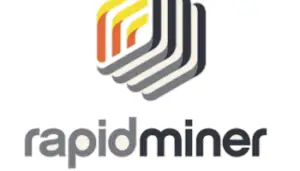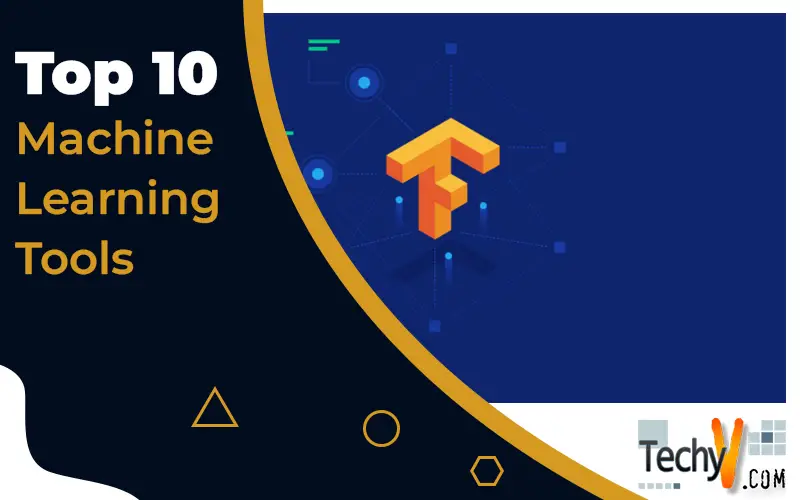Mostly, every tech person is already familiar with machine learning. It is basically a form of AI that automates data analysis, permitting PCs to learn through experience to perform various tasks without explicit programming. And this can be done with the help of machine learning tools. And as machine learning is very popular these days and growing rapidly, there are numerous machine learning tools available online to help developers and, for better results and making your work faster & more efficient, you need to choose that particular tool that would be right for you. So, for this selection, you can refer to our list of top 10 machine learning tools.
1. PyTorch
PyTorch is an open-source Torch based, Python ML library. It offers several optimization algorithms for developing neural networks utilizing auto grade module. PyTorch can easily be used on cloud platforms. It also has tutorial courses, several tools, and libraries for their users to make their work much easier.

2. Scikit-learn
Scikit-learn is one of the most popular open-source, simple, commercially usable, and efficient ML tools. It offers a library for the Python language. This tool mainly helps in data mining & data analysis. Scikit-learn can also be utilized for a wide range of data management & building techniques.

3. Shogun
Shogun is another popular ML tool that is completely independent and accessible to utilize. This tool is written completely in C++, which makes it highly accessible to enterprises of different sizes & backgrounds. Shogun is also available in many other programming languages, such as Scala, Ruby, R, Java Python, etc.

4. TensorFlow
TensorFlow is a famous name in the ML field, currently owned by our most famous platform, Google. It is an end-to-end open-source tool for machine learning. TensorFlow is capable of operating on both CPU & GPU technologies and is maybe its most crucial feature. It can be utilized across a wide range of tasks but has a main focus on training & inference of deep neural networks.
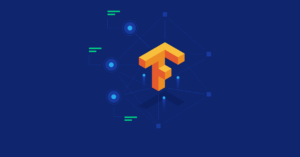
5. Google ML Kit for Mobile
For mobile application developers, Google brings machine learning Kit, which is combined with the expertise of ML & technology to build more powerful, optimized, and personalized applications. This tool kit can be utilized for face detection, image labelling, landmark detection, text recognition, and barcode scanning apps. You can also use this Google ML kit for working offline.
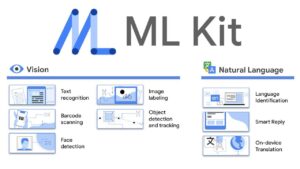
6. Apache Spark MLib
Apache Spark MLlib is a scalable ML library that runs on Apache Mesos, Standalone, Hadoop, Kubernetes, or in the cloud. Furthermore, it can access data from various data sources. This tool is easy-to-use as it offers interfaces in R, SQL, Java, Python, and Scala. Apache Spark MLib also contains high-quality algorithms that give great results & performance.

7. Accord.Net
Accord.Net is .Net based ML tool which is utilized for scientific computing. It is combined with audio & image processing libraries that are written in the programming language C#. This ML tool provides multiple libraries for several apps in machine learning, like statistical data processing, pattern recognition, and linear algebra.

8. Amazon Machine Learning
Amazon offers many ML tools and Amazon Machine Learning (AML) is one of them. It is a cloud-based and powerful machine learning tool which is widely utilized for developing machine learning models & making predictions. It also allows its users to import or export the model into and out from Amazon Machine Learning (AML).

9. Jupyter Notebook
Jupyter Notebook is one of the well-known machine learning tools that combines ultra-fast processing rates with an easy-to-utilize platform for developing & learning. Jupyter provides a huge community of developers from all over the world. Furthermore, developers also have the option of working with one of three programming languages: Python, R, and Julia.
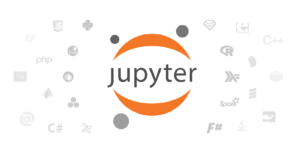
10. Rapid Miner
Rapid Miner provides a platform for ML, text mining, deep learning, data preparation, and predictive analytics. It can be utilized for research, education, and app development. Through its graphical user interface, it helps in designing & implementing analytical workflows. One of the great things about this ML tool is that it does not require much programming skills.
